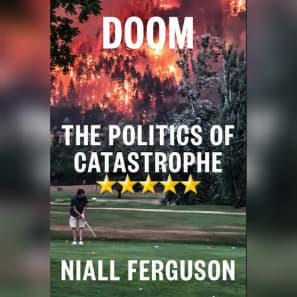
In books going back nearly twenty years, including Colossus, The Great Degeneration, and The Square and the Tower, Ferguson has studied the foibles of modern America, from imperial hubris to bureaucratic sclerosis and online fragmentation.ĭrawing from multiple disciplines, including economics, cliodynamics, and network science, Doom offers not just a history but a general theory of disasters, showing why our ever more bureaucratic and complex systems are getting worse at handling them.ĭoom is the lesson of history that this country–indeed the West as a whole–urgently needs to learn, if we want to handle the next crisis better, and to avoid the ultimate doom of irreversible decline. Doom The Politics of Catastrophe By: Niall Ferguson Narrated by: Niall Ferguson Length: 16 hrs and 35 mins 4.5 (444 ratings) Try for 0. Why? Why did only a few Asian countries learn the right lessons from SARS and MERS? While populist leaders certainly performed poorly in the face of the COVID-19 pandemic, Niall Ferguson argues that more profound pathologies were at work–pathologies already visible in our responses to earlier disasters. Yet in 2020 the responses of many developed countries, including the United States, to a new virus from China were badly bungled. But when disaster strikes, we ought to be better prepared than the Romans were when Vesuvius erupted, or medieval Italians when the Black Death struck.

and wars, are not normally distributed there is no cycle of history to help us anticipate the next catastrophe. Pandemics, like earthquakes, wildfires, financial crises.

Inspired by the events of our present pandemic he has gone looking for historical parallels in past contagions, and in human responses to disasters more generally, and what lessons they might have for our present predicament. Disasters are inherently hard to predict. Niall Ferguson clearly felt a strong compulsion to get busy on this, while he was in lockdown.


 0 kommentar(er)
0 kommentar(er)
